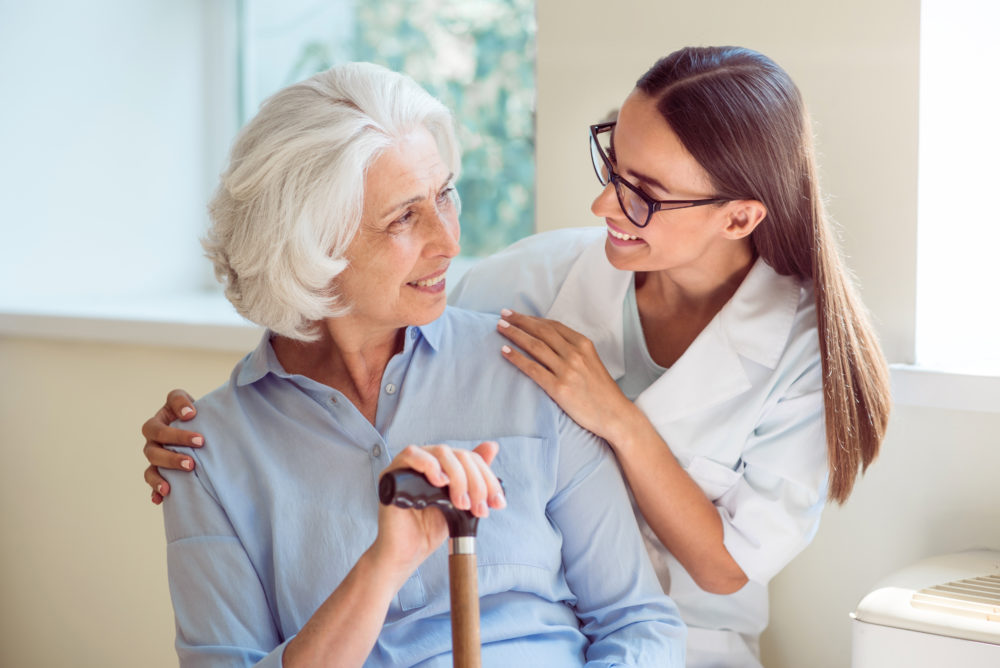I have seen a number of elderly seniors who have undergone hip replacements. The typical thread of events usually goes like this:
- A stumble in the home results in a fall caregiver / helper assisting an elderly man with a walker
- After some time in the hospital and a rehab center, the patient is sent home.
- At home, a home health agency sends out a physical therapist to work with the patient.
- The home health agency physical therapist achieves all their goals with the patient or the patient plateaus.
- The home health agency discharges the patient.
- All exercise ceases.
Step 6 is really where things can start to turn south quickly because the patient is likely not back to their pre-injury state (which wasn’t great to start with) and they now have less confidence. To help prevent the downward health spiral, one of the best things that the patient, or a family member of the patient, can do is hire someone to be an exercise buddy.
Why an Exercise Buddy?
This person doesn’t need to be a professional personal trainer or anything like that. They just need to be someone trustworthy who is physically capable. The buddy should ideally start getting involved when the home health agency physical therapist comes to the home. This will allow the physical therapist to teach the patient and exercise buddy how to safely and effectively execute the home therapy program that is recommended (in fact, “teaching” is a major component of what any good home health agency should be doing). Having an exercise buddy will hasten recovery because there will be someone to encourage the patient to follow through with their exercises. Furthermore, keeping an exercise buddy after the home health agency has discharged the patient will help ensure that the next fall never occurs.
Benefits of Exercise
There are so many proven benefits of exercise for the elderly that it is astounding (see note below). So get an exercise buddy and keep moving, especially after a traumatic ordeal like a hip replacement.
Side Note: Anyone interested in seeing the research on the physical and mental effects of exercise on the senior population should go and search around at the National Institute of Health: http://www.ncbi.nlm.nih.gov/pubmed. You usually don’t need to be a scientist to understand the abstracts. But if you do find something that befuddles you, feel free to post your questions here!




